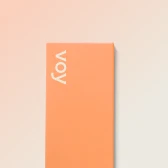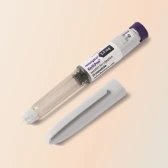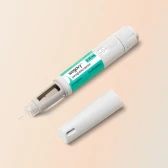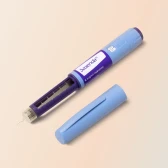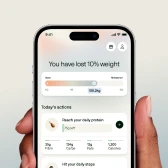At some point, you may come across the term “off-label prescribing”. It’s a common and well-established medical practice, but it can be confusing.
Let’s discuss what off-label use means, how it differs from unlicensed medications, and why we sometimes recommend an off-label approach at Voy.
What does “off-label” mean?
Off-label prescribing means using a licensed medication in a way that isn’t specifically outlined in its official licence.
When a medicine is approved, its official license (called the marketing authorisation) sets out exactly how it should be used—things like the condition it treats, the recommended dose and how often it should be taken. But sometimes, a doctor might recommend that the medicine is used in a slightly different way. And this is what we mean by “off-label prescribing”.
Prescribing a medicine off-label might mean:
- Giving a higher or lower dose
- Using the medication for a different condition
- Prescribing the medication for a different age group
- Giving it in a different way (like an injection instead of a tablet)
- Using it for shorter or longer than detailed in the official license
That might sound unusual, but off-label use is common and completely legal across the NHS and other healthcare systems. Doctors don’t take these decisions lightly. Off-label prescribing is always based on their clinical judgement and the best available evidence.
What’s the difference between off-label prescribing and using an unlicensed medication?
Off-label prescribing is not the same as using an unlicensed medicine. The two terms are often confused, but there is an important difference:
- Off-label means using a licensed medication in a way that differs from the official license.
- Unlicensed means using a medication that has not been approved for use in the UK.
At Voy, we do not use unlicensed medications. All medicines we prescribe are licensed for use in the UK.
A simple analogy: cooking with oats
Licensed use is like following a porridge recipe exactly. You use oats and water, and follow the cooking method and timing just as printed on the pack. That’s similar to prescribing a medicine exactly as outlined in its licence.
Off-label use is a bit like using the same oats but preparing them differently to suit your needs or preferences. The core ingredient is the same, and it’s still safe and effective, but you’ve adjusted how it’s used.
Here’s how that might look:
- Using more or less oats
- Making oat muffins instead of porridge
- Baking instead of boiling
- Soaking overnight or cooking longer
In each case, you're working with the same ingredient. You’re just using it in a way that works better for your situation, based on good knowledge and experience.
Unlicensed use would be like replacing oats with a completely different grain that hasn’t been approved for consumption in your country. It might work elsewhere, but it isn’t authorised here for this purpose.
Why we might recommend an off-label approach
At Voy, we only recommend off-label prescribing when we believe it offers a safe and more effective pathway for your care. One example is when switching from one GLP-1 medication, like Mounjaro, to another, such as Wegovy. While the official guidance is to start from the lowest dose, that isn't always the most clinically appropriate choice for someone who is already stable on a GLP-1.
If you’ve already been using Mounjaro and have responded well with minimal side effects, restarting Wegovy from the very beginning could unnecessarily slow your progress. In these situations, we may suggest beginning at a slightly higher dose so you can maintain momentum. Although this approach is technically considered “off-label,” it is always based on your individual treatment history and the best available clinical evidence.
It’s important to know there isn’t a direct one-to-one dose equivalence between these medicines because they work differently. Mounjaro acts on GLP-1 and GIP receptors, while Wegovy acts on GLP-1 only. Because of this, your body’s response can vary and side effects may not match exactly.
The benefit of starting at a higher dose is that it helps preserve the progress you’ve made, avoiding unnecessary setbacks or disruption. On the other hand, it may increase the chance of side effects during the transition, particularly for those who’ve experienced them before.
That’s why we weigh up the pros and cons carefully before making a recommendation. And of course, the decision is always yours. If you’d prefer the standard approach and to start at the lowest dose, we’ll fully support that too. Our goal is to find a plan that feels safe, effective, and comfortable for you.
How we make that decision
Our licensed prescribers review your case in full before recommending any off-label option. This includes looking at:
- The specific medication you’ve been using
- Your most recent dose and how long you’ve been on it
- Any side effects you’ve experienced
- How well you’ve tolerated treatment overall
- Your broader medical history and reported conditions
We use all of this information to decide whether an off-label approach is the most effective option for your care.
Is off-label prescribing safe?
Yes. Off-label prescribing is widely used across many areas of medicine, including dermatology, cardiology, fertility, and mental health. It is also regularly used by NHS services when supported by clinical reasoning and good evidence.
The key is that it’s prescribed thoughtfully and with your safety in mind. At Voy, all off-label decisions are made by qualified prescribers based on your personal treatment and medical history.
If we recommend an off-label approach for you, we’ll always explain this in advance, including why it’s being suggested and what your options are. You’ll never be prescribed off-label without knowing.
Thousands of people trust Voy for safe, clinically backed weight loss support. Curious if our programme could be the right fit for you? Take our short quiz and one of our clinicians will get back to you asap.
“Drug Safety Update: Off‑label or Unlicensed Use of Medicines—Prescribers’ Responsibilities.” UK Government
“Introduction.” NICE Good Practice Guidance: Managing Medicines

